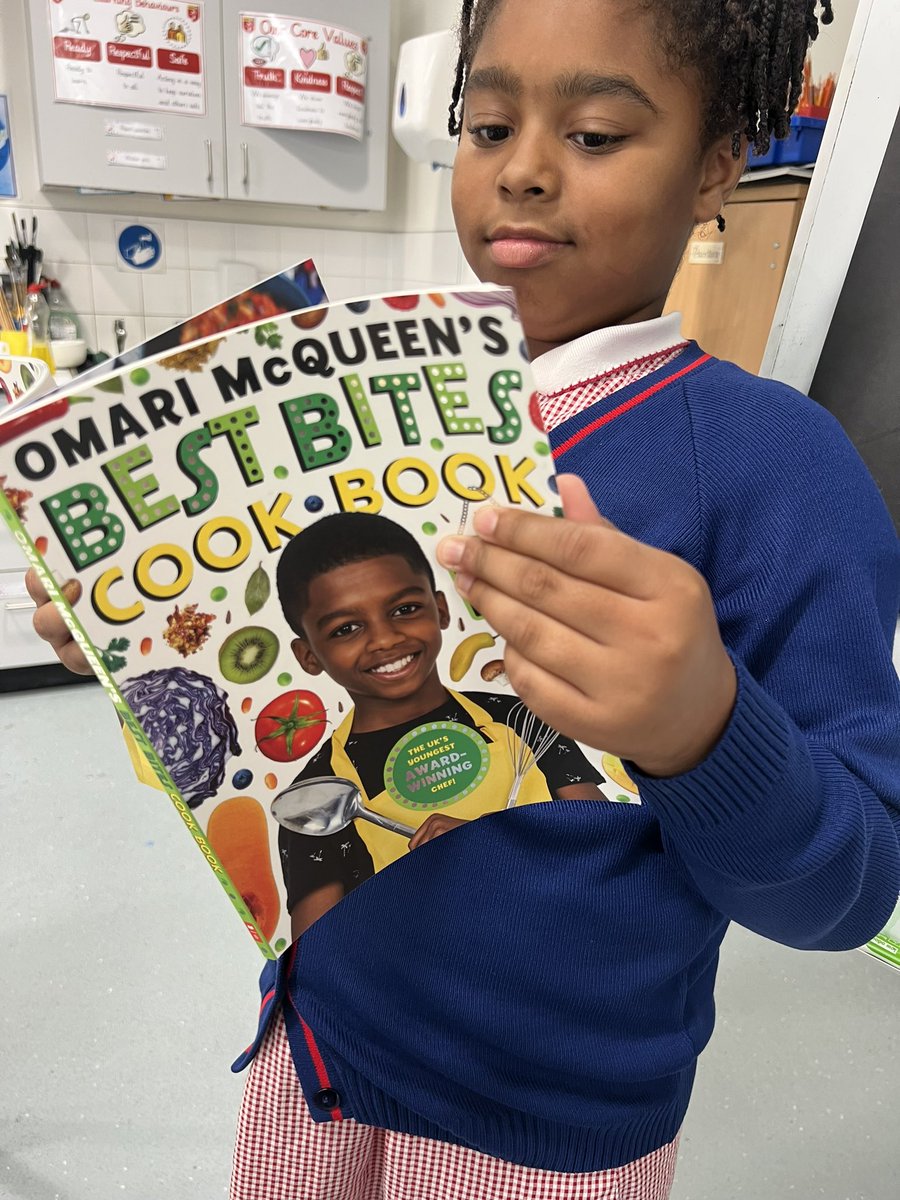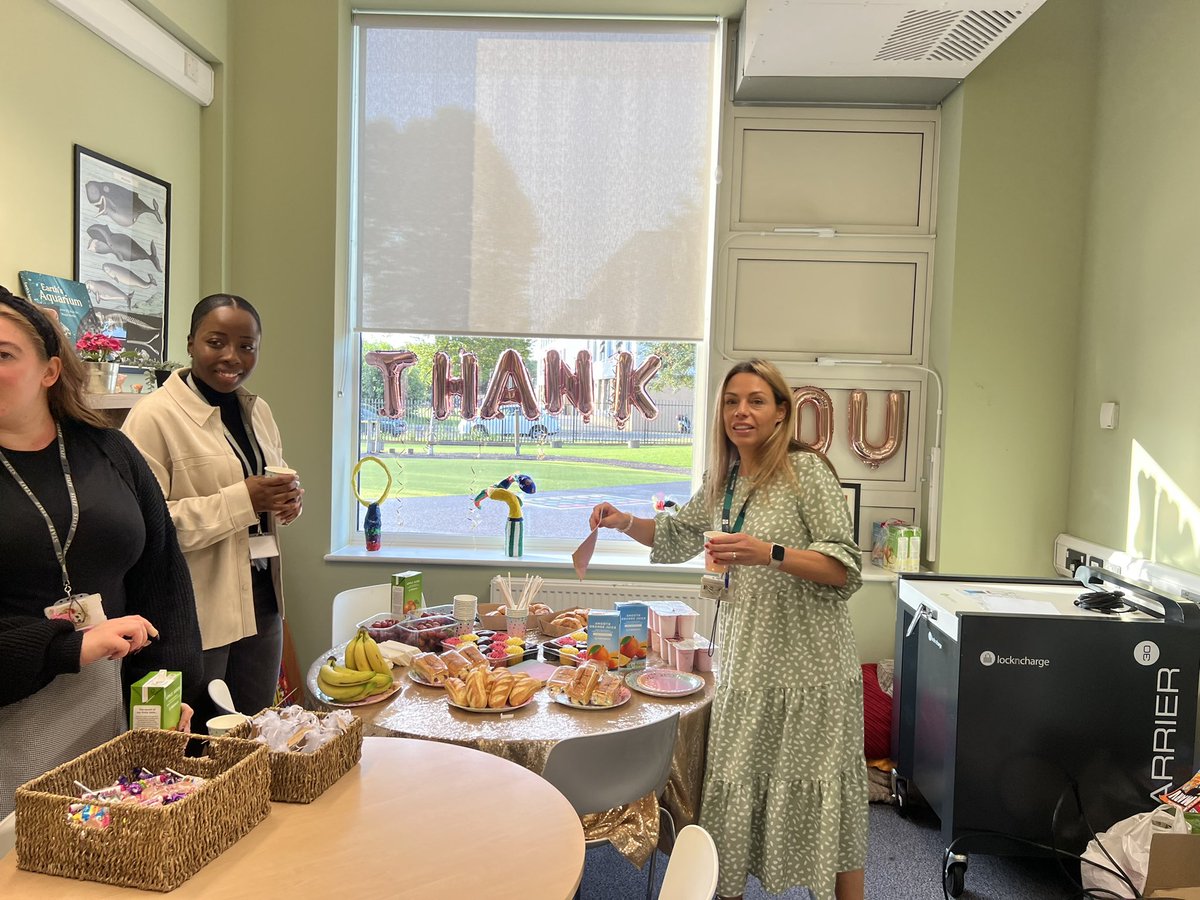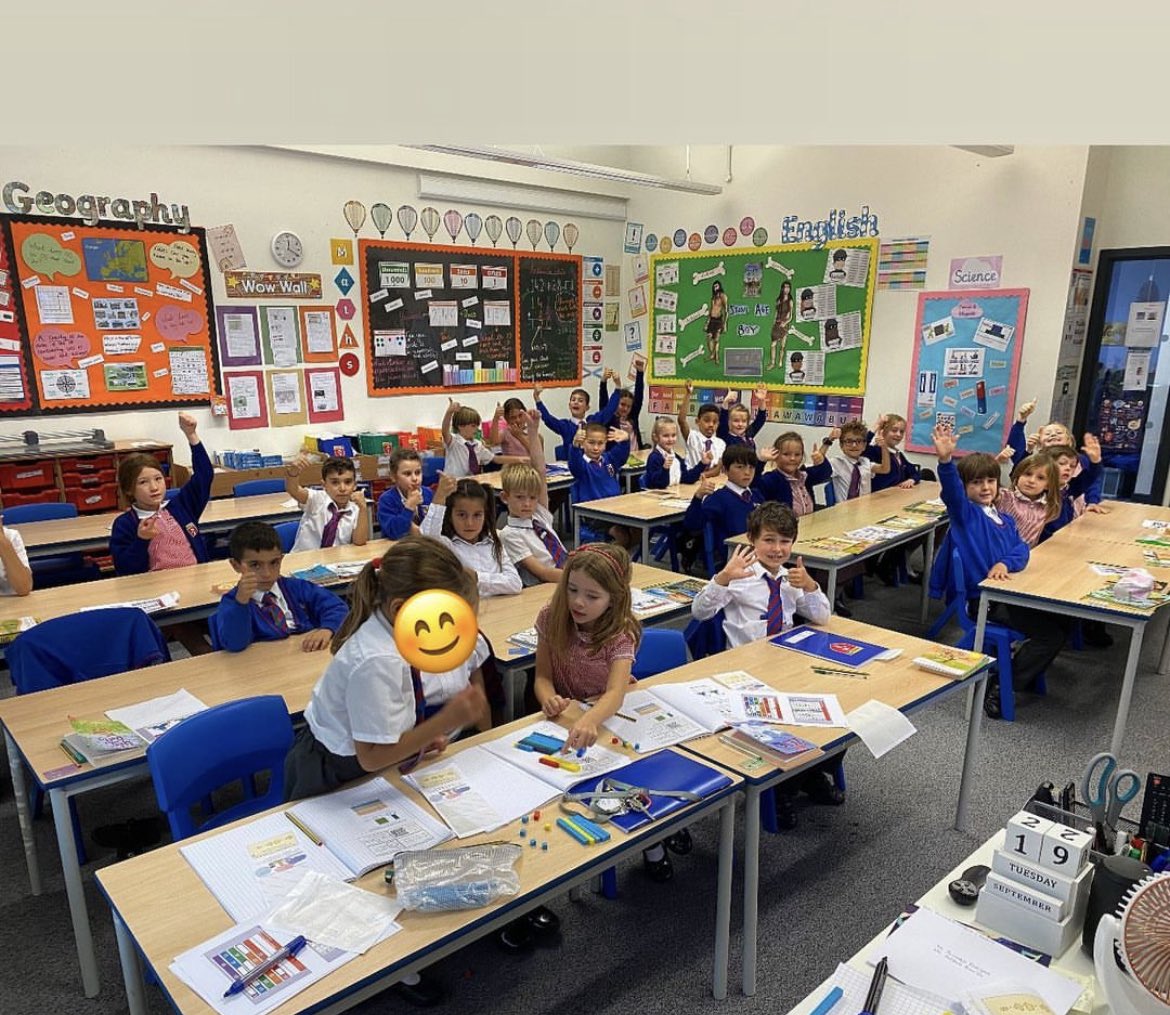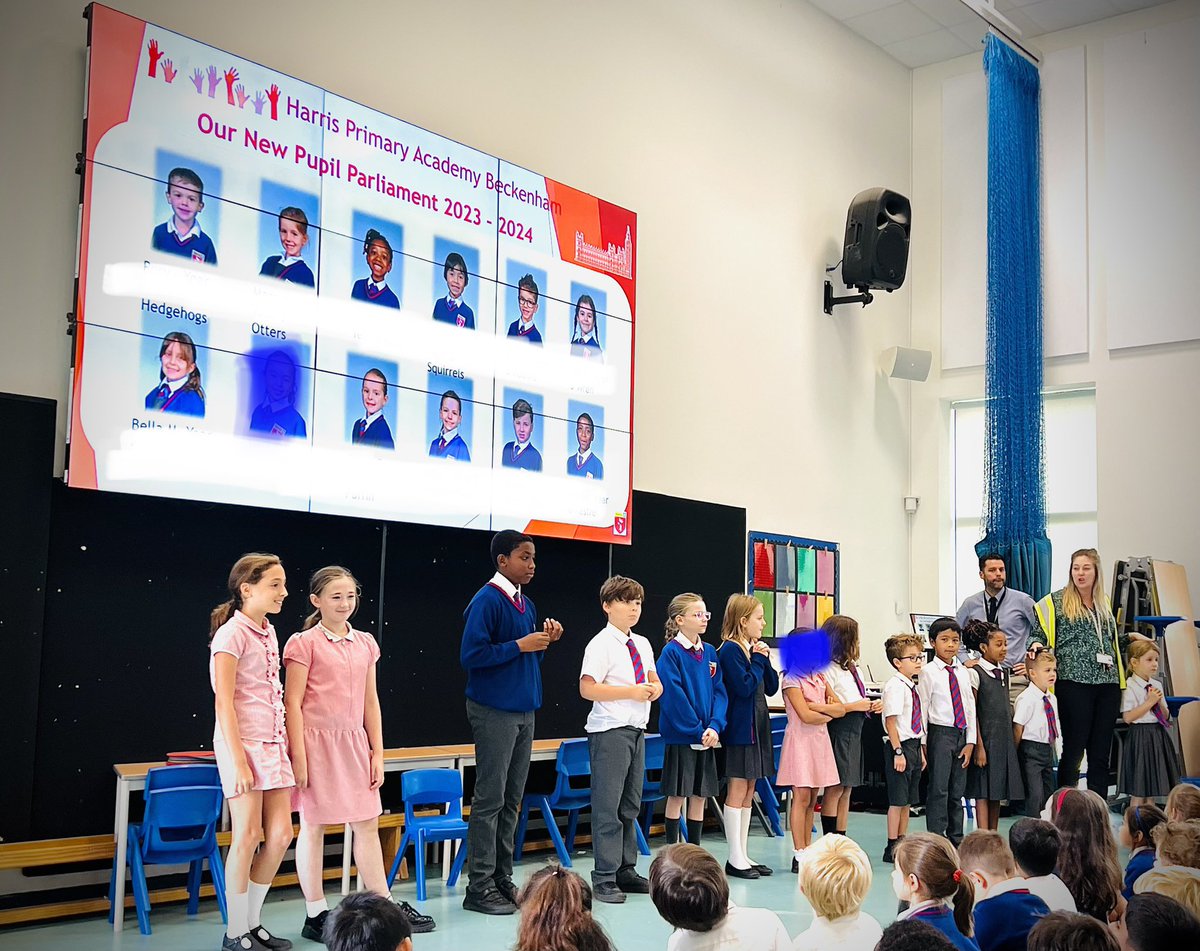EYFS
Early Years
In Reception, we follow the Statutory Framework for the Early Years Foundation Stage issued by the Department for Education (DfE).
The curriculum consists of seven areas of learning:
- Personal, Social and Emotional Development
- Physical Development
- Communication and Language
- Literacy
- Mathematics
- Understanding the World
- Expressive Arts and Design
There are then 17 Early Learning Goals (ELGs) which are part of these areas of learning. If a child achieves these goals by the end of the Reception year then they are said to be working at the expected level.
To support children with working towards these ELGs we use a document called Development Matters. This breaks down each goal into different age bands and is used by staff throughout the year to assess how close children are to reaching the goals.
All of these documents, and many other useful resources, are available from this website: www.foundationyears.org.uk
In the classroom
Early Years learning and development is provided through purposeful play and through adult led structures and routines that build confidence and provide intellectual stimulus and challenge.
Throughout the day, children will have direct teaching sessions for maths, literacy and phonics, either as the whole-class or in small groups. The rest of the time they will be taking part in activities inside and outside the classroom. Some of the activities will have been prepared by the teacher and will focus on specific objectives. They may be led by an adult or modelled initially and then the children can access them independently. The children will also be able to choose activities from any of the other resources available.
Teachers choose which activities to set-up by assessing the children’s levels of understanding across all areas of the curriculum and identifying any ‘gaps’ in their learning. Teaching inputs and activities are then planned to address these gaps and evidence is then gathered to show the children have then achieved this learning.
All the teaching staff will be engaging with the children during the activities and helping to support their learning and development. Children’s learning is assessed by observing what they say and do during these times. These are recorded and are then shared with parents.
In Reception, we follow the Statutory Framework for the Early Years Foundation Stage issued by the Department for Education (DfE).
The curriculum consists of seven areas of learning:
- Personal, Social and Emotional Development
- Physical Development
- Communication and Language
- Literacy
- Mathematics
- Understanding the World
- Expressive Arts and Design
There are then 17 Early Learning Goals (ELGs) which are part of these areas of learning. If a child achieves these goals by the end of the Reception year then they are said to be working at the expected level.
To support children with working towards these ELGs we use a document called Development Matters. This breaks down each goal into different age bands and is used by staff throughout the year to assess how close children are to reaching the goals.
All of these documents, and many other useful resources, are available from this website: http://www.foundationyears.org.uk/
In the classroom
Early Years learning and development is provided through purposeful play and through adult led structures and routines that build confidence and provide intellectual stimulus and challenge.
Throughout the day, children will have direct teaching sessions for maths, literacy and phonics, either as the whole-class or in small groups. The rest of the time they will be taking part in activities inside and outside the classroom. Some of the activities will have been prepared by the teacher and will focus on specific objectives. They may be led by an adult or modelled initially and then the children can access them independently. The children will also be able to choose activities from any of the other resources available.
Teachers choose which activities to set-up by assessing the children’s levels of understanding across all areas of the curriculum and identifying any ‘gaps’ in their learning. Teaching inputs and activities are then planned to address these gaps and evidence is then gathered to show the children have then achieved this learning.
All the teaching staff will be engaging with the children during the activities and helping to support their learning and development. Children’s learning is assessed by observing what they say and do during these times. These are recorded and are then shared with parents.
Phonics:
Phonics is the method used in most primary schools to teach children to read. We follow the Read Write Inc programme which is a linguistic-based scheme that teaches children to hear the sounds that are used in words and then the letter or letters which make those sounds. Children are taught to apply this knowledge for both reading and spelling words. In Reception, children have daily teaching sessions for phonics and this will continue into Key Stage 1.
Reading:
As well as taking part in daily phonics sessions, children have a 1-1 reading session with their class teacher each week. This is where their phonic skills can be assessed and supported and they will also be asked comprehension questions to develop their understanding of texts. Comments are made in the children’s Reading Records which are then sent home for parents to read and contribute to. This way, a dialogue about the child’s reading is established between home and school so there is a consistency of approach.
To help develop a love of reading, children will have stories read to them frequently in class and books will often be the basis for an entire unit of work. They will also be allowed to take home library books to read with an adult as this will help improve their understanding and comprehension. Research has shown the significant positive impact that reading at home can have on children’s ability and understanding so we encourage families to read with their children on a daily basis.
Writing:
Children will be taught spelling, handwriting and writing for purpose. Some of this will be delivered as part of the daily phonics sessions and also as part of the focused and independent learning activities.
In Reception, children will be given opportunities to write for different purposes e.g. shopping lists, instructions, stories and captions. Writing will be encouraged in a range of contexts in order to engage all children.
Maths:
The focus of the maths curriculum in Reception is on ensuring children have an excellent understanding of the basic concepts of number along with a real-world understanding of maths through shape, space and measurement. Children will be taught how to write numbers but the focus is on the understanding of the concepts.
We will be using an innovative, focused program of work which teaches children mathematical concepts practically first, before moving on to pictorial representations and finally the abstract recording. It is based on the maths curriculum that is delivered in Singapore and is proven to be incredibly effective for children of all ages and abilities. The curriculum covers all the objectives from the UK National Curriculum including the renewed focus on problem solving, reasoning and number fluency.
Wild Wood:
Additionally the children are able to visit Wild Wood (within school grounds) to further enhance their learning, through exploring and gaining new learning experiences engaging with the outdoor environment whatever the weather. Working outdoors, one class at a time in the forest school area, we are able to use to use the outdoor area near the field which also supports the characteristics of effective learning, that children in the early years are require to develop.
Prime Areas
We believe that the prime areas of learning are the base stone for all future learning and therefore place a lot of emphasis on ensuring that all children feel, happy, secure and settled into the school environment. During the first term, we begin the child’s first experience of Reception by focusing the topic around them and their families; enabling them to engage in a subject they know the most about. We want all children to become confident, active and independent learners, enabling them to enter Key stage one with the skills that they need to continue their journey of learning.
Personal and Social and Emotional Development
This area of learning provides opportunities for children to develop positive attitudes about themselves and those around them. We want children to become valued members of the class and shape their own identity through an increasing awareness of their own needs and the needs of others. This area of learning helps children to develop positive dispositions to learning, to be cooperative and communicative. It helps to develop and show an understanding of what is right and wrong and begin to consider the reasons why and developing an understanding that there are always consequences to a particular behaviour, whether rewards or sanctions. It supports the development of social skills by providing opportunities that enable children to learn how to socially respond and work with one another.
Physical Development
This area of learning offers opportunities for children to develop and practise the control they have over their own bodies. It allows for them to further develop the confidence and skill in large gross motor movements such as running, jumping, climbing, swinging, hanging etc. Developing and promoting their spatial awareness and coordination, whilst at the same time encouraging the fine motor skills that they will need to develop holistically. Encouraging the finer movements which involve the ability to control the use of one-handed tools and equipment e.g. digging tools, paint brushes, mark-making and writing tools. This area of learning is also vital in supporting a developing understanding of how their bodies work and what they need to be healthy and safe, (including knowing when they are hungry, cold, hot or thirsty etc) and how they are able to best meet these needs.
Communication and Language
This area of learning provides opportunities for children to develop new vocabulary and the skills needed to talk confidently in a wide range of situations. It helps them respond to their peers and adults in an environment where speaking and listening are highly valued skills. It allows them to communicate and respond in a variety of contexts and places value on them expressing their own thoughts and ideas and taking into account the thoughts and ideas of others. It also gives opportunities for all children to explore, enjoy, learn about and use words and text in a broad range of contexts, including through stories, role play and drama.
Specific Areas
There are four specific areas of learning which supplement the prime areas and allow children to become confident active learners when the prime areas of learning have been supported and applied. Through these areas, we believe children can further develop their knowledge of the world around them and develop an understanding of all future learning that waits them. Here children will continue to become effective learners and develop the dispositions to learning through being curious, resourceful, persistent and courageous. These areas of learning are the basis for main whole class teaching sessions, as well as the independent and adult led learning opportunities available, with the prime areas at the forefront of all teaching and learning.
Literacy
This area of learning supports the development of linking sounds to letters and understanding that from this we can read and write. Children will begin to recognise print in their environment and start to understand that this is one way of communicating with one another. It is vital that children understand that print carries meaning and that they are able to engage with this essential element of communication and the high importance it holds. We actively promote the importance of reading and writing which is done through stories, songs, poems, mark making in a writing in a variety of different context and for different purposes using a wide range of media. Throughout all classes there is a book corner and areas that promote active mark making and writing. Both Reception classes have a phonics area, which the children are encouraged to use to support both their independent learning. We teach phonics on a daily basis and use the ‘Sounds write’ program of study which places emphasis on the sounds within words.
Mathematics
This area of learning provides opportunities for children to develop their understanding of number, measurement, pattern, shape and space by providing a broad range of contexts in which they can explore, enjoy, learn, practise and talk about numbers and shapes. It encourages children to understand and respond to the symbols that represent numbers and what this means in real contexts. It supports children in understanding what an important role shapes and numbers play in our everyday lives and how they develop our own understanding and help us to solve problems. Please see the EYFS calculation policy for further reference.
Knowledge and Understanding of the World
This area of learning provides opportunities for children to solve problems, question, make decisions, experiment, predict, and plan in a variety of contexts and to explore and find out about their environment. It helps to develop their senses and understanding of their physical world. This is further supported through visiting forest school and having the everyday experiences of the outdoor environment. By engaging with the world around us children learn more about people and communities and the world in which they live. Children will also explore the impact of Information and communication technology on their everyday lives
Creative Development
This area of learning offers opportunities for children to explore and share their thoughts, ideas and feelings through a variety of art, design and technology, music, movement, dance, imaginative and role-play activities. They are presented with the opportunities to experiment with different media, resources and a range of activities which will inspire and stimulate their creativity and motivation to move their learning forward.
The Foundation Stage Curriculum and the Early Years Foundation Stage provides a structure of learning opportunities through which we develop the different aspects of early education. These areas cover the basic skills necessary for Key Stage 1 of the National Curriculum.
We believe our creative and topic based curriculum helps children meet learning opportunities within a happy, secure and interesting environment through practical activity, enquiry and purposeful play, with consolidation through practice, talk and reflection.























